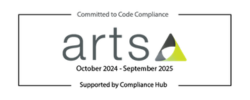Estimating the effectiveness and cost-effectiveness of a free NHS online Diabetes Self-Management Education and Support service in England, ‘Healthy Living for people with type 2 diabetes’
Background: Healthy Living for People with Type 2 Diabetes is a free national NHS Diabetes Self-Management Education and Support (DSMES) service for adults with type 2 diabetes. It was developed by NHS England to provided diabetes education and support adults across England to make changes such as being more active, eating healthily and stopping smoking. It is based on HeLP-Diabetes, an intervention developed by a team at University College London, which was effective in reducing blood glucose in a clinical trial. The HED-LINE research programme was funded by the National Institute for Health and Care Research to undertake a comprehensive evaluation of the real-world implementation of Healthy Living. In this presentation we will present HED-LINE findings on the effectiveness and cost effectiveness of Healthy Living.
Methods: We matched patient-level anonymised data from Healthy Living to the National Diabetes Audit and used linear/logistic regression models to compare 1-year health outcomes (HbA1c (primary), BMI, and blood pressure) between those who activated a Healthy Living account and usual care. We analysed the costs and benefits using the UKPDS-OM2 model. People with experience of type 2 diabetes played an important role in this research and have helped us to identify the benefits to patients and the NHS.
Results: Healthy Living is a high-quality service, and the content is suitable for supporting self-management. People who activated a Healthy Living account had lower HbA1c (blood glucose) at 1 year (primary outcome), on average, than a matched NDA control group, a mean difference of -1.3 mmol/mol (95% CI -1.7; -0.8, p<.001). Healthy Living activators had lower BMI, systolic and diastolic blood pressure, compared to controls, and higher odds of completing 8 care processes that are recommended for people with type 2 diabetes. Results were better in those who used the programme more. The UKPDS-OM2.1 predicted a modest improvement in health (0.016 QALYs) and a small reduction in healthcare costs over a lifetime (-£4 per person). Offsetting intervention costs (£7 per user) and increased medication costs (£212 per user) yielded a net cost of £216 per user. The cost-per-QALY of £13,192 was below the lower NICE threshold (£20,000/QALY), indicating that the programme is cost‐effective. A series of sensitivity analyses largely demonstrated robustness, but the finding was sensitive to structural assumptions about disease progression post-intervention with the inclusion of medication costs.
Conclusions The large-scale real-world implementation of Healthy Living is associated with moderate positive health benefits and is likely to be cost-effective. We have regularly reported back to the people running Healthy Living, making suggestions about what could be improved, and they made changes as they went along.





)
)
)
)

)
)
.jpg/fit-in/1280x9999/filters:no_upscale())
.png/fit-in/1280x9999/filters:no_upscale())
)
